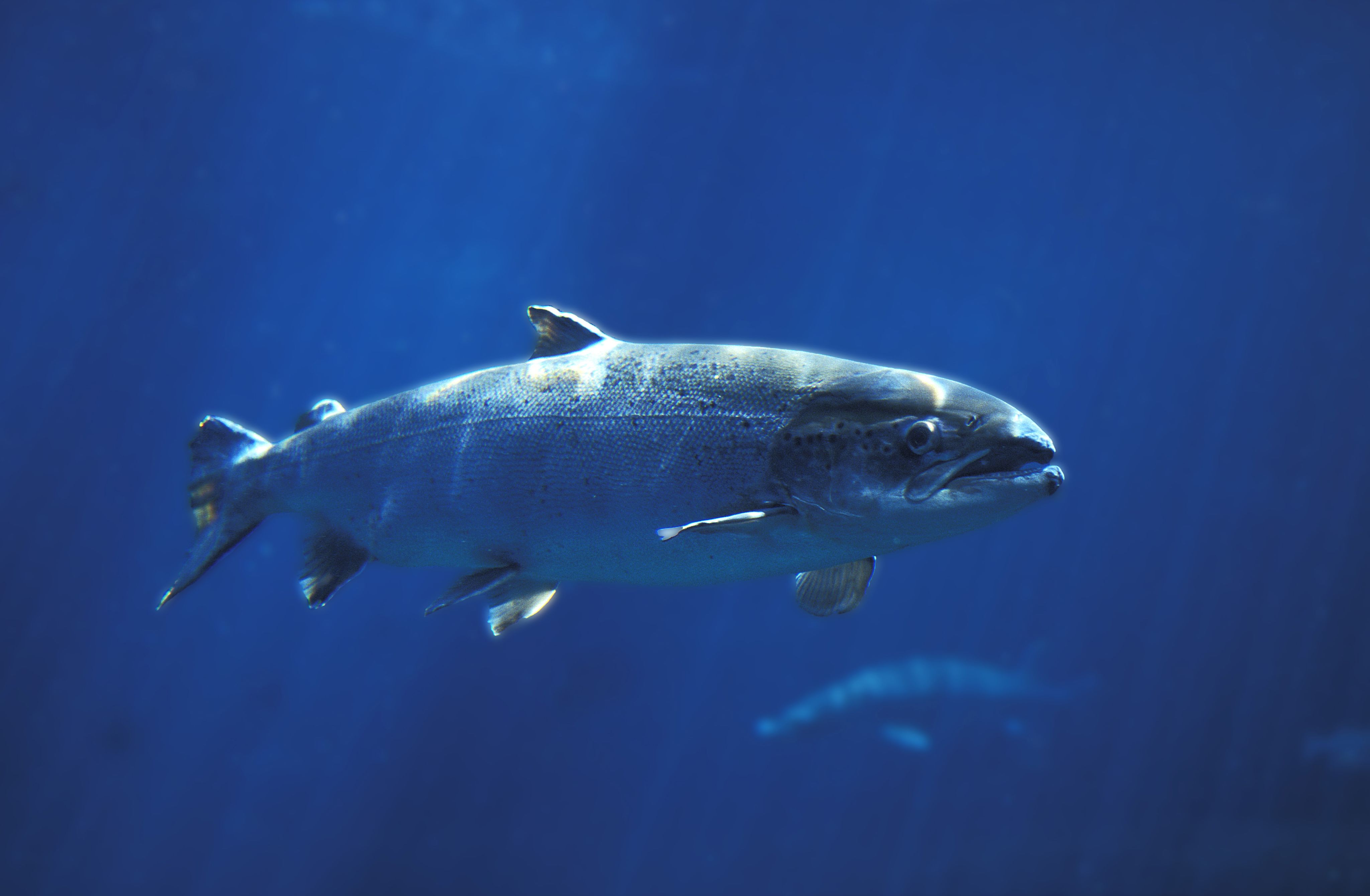Exploring genetic resistance against infectious salmon anaemia virus (ISAV)
The UK aquaculture industry has a production value of over
£590 million to the UK economy, and Scottish salmon represents one of the most valuable food exports.
Several collaborative projects and Industrial Partnering Awards between Professor Ross Houston, who led the Aquaculture Genetics group at the BBSRC strategically-funded Roslin Institute, and Benchmark Genetics have led to new tools and methods for improving disease resistance in salmon.
One recent project investigated genes involved in resistance against infectious salmon anaemia virus (ISAV) in Atlantic salmon. ISAV is an important viral disease of farmed salmon that has caused considerable financial losses for salmon farmers around the world, either directly or via biosecurity restrictions on the movement of stocks. The project used extensive pedigree and genomic data to discover that resistance to ISAV was a heritable trait in commercial Atlantic salmon and to pinpoint the regions of the genome and differences in gene expression related to resistance. New and efficient methods for genome editing of salmonid fish cell lines were also developed.
Through this research, Benchmark Genetics has optimised its genomic selection for ISAV resistance and is moving forward with research and development targeting genome-edited salmon for disease resistance traits, including ISAV. The approaches apply to other areas of aquaculture research too, and ongoing projects are focussed on using similar methods for resistance to sea lice.
Professor Houston has now joined Benchmark Genetics as Director of Innovation, where he will continue to contribute to translational work in aquaculture genetics.
